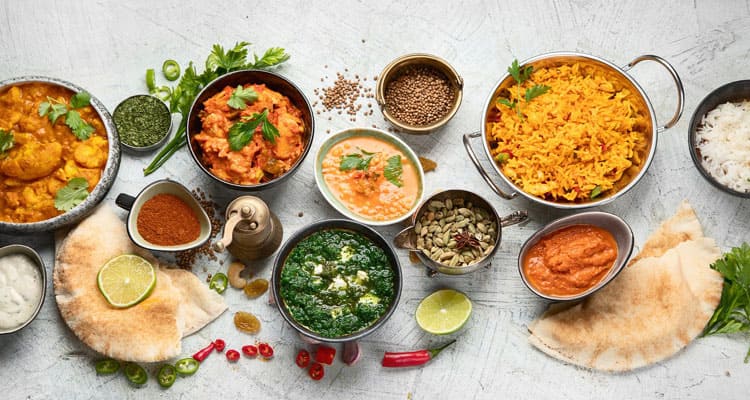Best Indian Diet for Weight Management
Managing your weight can feel like a herculean task at times, but if you understand the basic concept of how our body loses and gains calories, you can very well manage your diet in such a way that you start losing weight while also fulfilling your dietary requirements. A traditional Indian diet can sometimes be loaded with calories because of a high amount of carbs and fats. But with a few small adjustments you can easily ensure that your diet is nutrient-rich and helps in weight loss.
In this blog, we’ll guide you on how to build the best Indian diet for weight management.
Understanding Weight Management
Before getting into the weight management diet, it’s essential to understand the fundamental principles of maintaining a healthy weight. It’s not just about consuming what you want and then exercising to burn it off. The body doesn’t work in such a simplistic way. Here are the factors that you should consider.
Caloric Balance
Weight management is all about the balance between calories consumed and calories expended. To lose weight, you must consume fewer calories than you burn, and vice-versa. If you want to maintain your current weight, the two should be approximately equal.
Nutrient Diversity
A balanced diet should include a variety of nutrients, such as carbohydrates, proteins, fats, vitamins, and minerals, to ensure overall health and well-being.
Portion Control
Even healthy food, when consumed in high amounts, can lead to weight gain. Therefore, exercising portion control is also one of the things you must do to manage weight.
Physical Activity
Finally, regular exercise and physical activity are essential components of any weight management plan.
The Best Indian Diet for Weight Management
Now, let us apply the above factors in an Indian diet and find out how you can set up a healthy Indian diet for weight loss.
Incorporate Good Carbs
The first component of your diet should be carbohydrates. And don’t let anyone tell you that all carbs are bad. Carbs are our primary source of nutrition and they should be a part of your diet. The thing to keep in mind is the type of carbohydrates you’re consuming. Simple sugars like those present in foods like white rice, cakes, biscuits and sweets are very high in calories and they will create a calorie surplus instead of a calorie deficit.
Instead, opt for complex carbs like those present in brown rice, oats, ragi, bajra and jowar since they’re absorbed slowly by the body. You can prepare the chapati/bread component of your meal using the above grains.
Include Proteins
After carbohydrates, proteins are the next essential macronutrient that should be included in your meal. Proteins are the building blocks of your body and are essential for repair of tissue, muscles, skin and cartilage. An Indian diet can sometimes be deficient in protein. Try to include protein-rich foods like rajma, chickpeas, green gram, paneer, milk, eggs, sprouts and lean meat. The daily human requirement of protein is 1 gram.
Add Fats
Again, fats get a bad rep when, in fact, they’re the third essential macronutrient that play a role in nutrient absorption, energy generation hormone production. Experts advise that 20% of your meal should consist of healthy fats. Polyunsaturated and monounsaturated fats, as well as Omega-3 fatty acids are considered healthy fats.
In an Indian diet, try to consume a combination of different oils like olive oil, rice bran oil, sesame, soybean and mustard oil in different meals to get your fat requirement. A limited amount of butter and ghee can also be consumed.
Fibre-Rich Foods
Include whole grains such as brown rice, whole wheat, and oats in your diet. These are rich in fibre, which promotes fullness and aids in weight management.
Fruits and Vegetables
An Indian diet also is full of vegetables and fruits. These are low in calories and high in vitamins and minerals, making them a vital part of any weight management plan. Use their abundant availability to your advantage and include them in your diet.
With the above guide, you can prepare your Indian diet optimised for weight management according to your preferences. You can also take the guidance of an expert nutritionist near you. Download the FITPASS app and sign up for a FITFEAST membership. Our experienced dieticians will help you with the best weight loss diet based on your goals and tastes.
FAQ
What type of diet is recommended for weight management?
A diet that is low in calories but nutrient-dense is recommended for weight management.
How to lose 7 kg in 7 days?
Although you can lose 7 kg in 7 days with an aggressively low caloric-diet, it is not recommended and may have an ill-effect on your health. Instead, aim to lose around 1 kg of weight per week.
What are the 5 tips for weight loss?
- – Create a caloric deficit
- – Have nutrient-rich meals
- – Avoid unhealthy snacking
- – Drink plenty of water
- – Exercise




